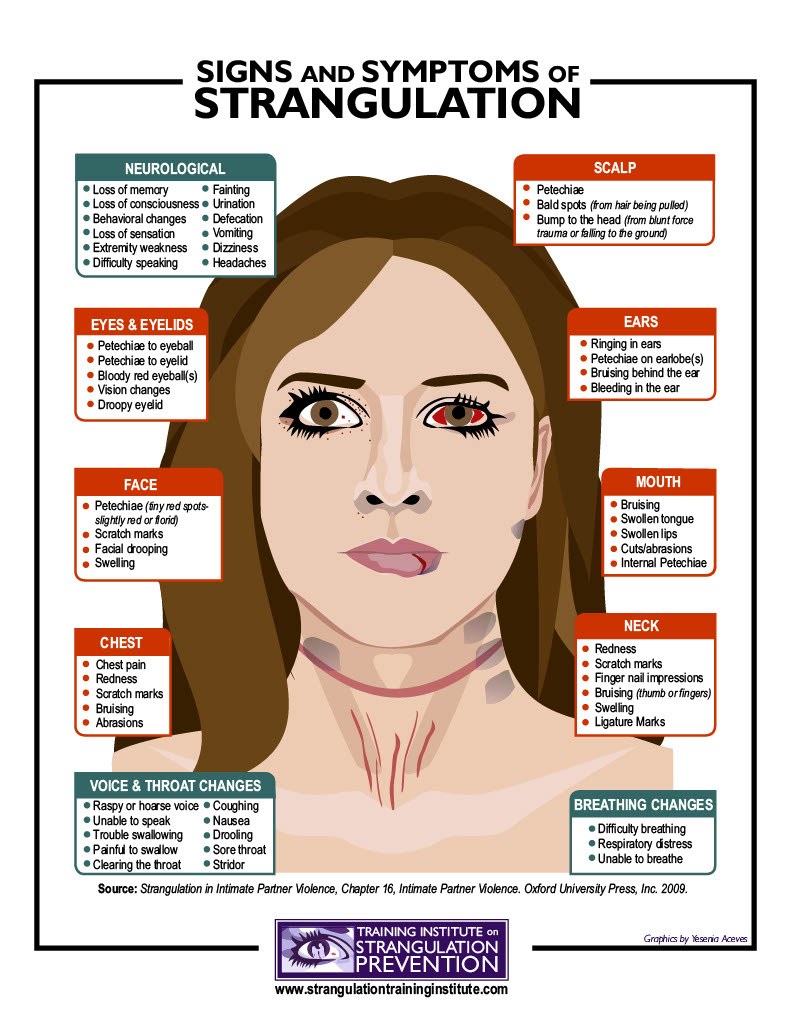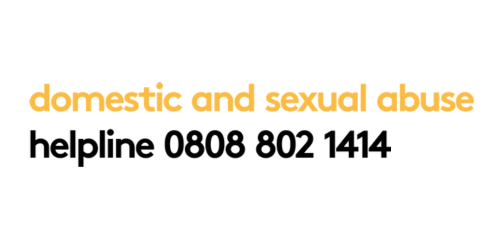Would you be able to spot the signs and symptoms of non-fatal strangulation? It could save a life.
In June 2023, non-fatal strangulation or asphyxiation (under The Justice Sexual Offences and Trafficking Victims Act NI 2022) became a specific criminal offence in Northern Ireland, punishable by up to 14 years imprisonment. Since then, 49 individuals have been arrested for the offence with 26 alleged perpetrators having been charged. [i]
Raising awareness about non-fatal strangulation is crucial in safeguarding victims and preventing such incidents from occurring. When people are informed, they are better equipped to recognize potential warning signs and intervene early, preventing situations from escalating further. Victims of abusive relationships are eight times more likely to be murdered by their partner if non-fatal strangulation had already occurred. [ii]
Non-fatal strangulation includes any action that intentionally affects their victim’s ability to breathe in an attempt to control or intimidate them. Common forms of strangulation or asphyxiation are:
Using two hands around the victim’s neck,
Putting pressure on the victim’s neck using a body part like a foot, arm, knee etc.,
Pulling tightly using a ligature (an object like a scarf or belt) around the neck,
Hanging,
Covering the mouth and nose to prevent breathing. [iv]
Many victims of non-fatal strangulation may not immediately recognize the severity of the act or may be too afraid to report it. Over 10% of people who experience domestic abuse and sexual assault report that they were strangled with vast majority making no report at all. [iii] By increasing awareness, more people can identify and report instances of non-fatal strangulation allowing appropriate intervention that can save lives.
The below graphic from The Training Institute on Strangulation Prevention highlights the key warning signs that someone has been a victim of non-fatal strangulation. If you have been a victim of this crime or think you know someone who has, please call 101 in a non-emergency and 999 in an emergency to report.

If you have been impacted – directly or indirectly – by domestic and/or sexual abuse, we are here to support you. You can contact us via phone, email, or live chat 24 hours a day, 7 days a week, every day of the year.
Call us on 0808 802 1414
Email help@dsahelpline.org
Chat online with us by clicking on the ‘Contact Us Now’ button at the top of this page.
ENDS
[i] Police Service of Northern Ireland
[ii] Police Service of Northern Ireland Non-Fatal Strangulation Toolkit
[iii] Dr Sarah Hull, Clinical Director, The Rowan – ‘What happens if someone is strangled’ video – PSNI Website
[iv] NI Direct – Strangulation and Suffocation
